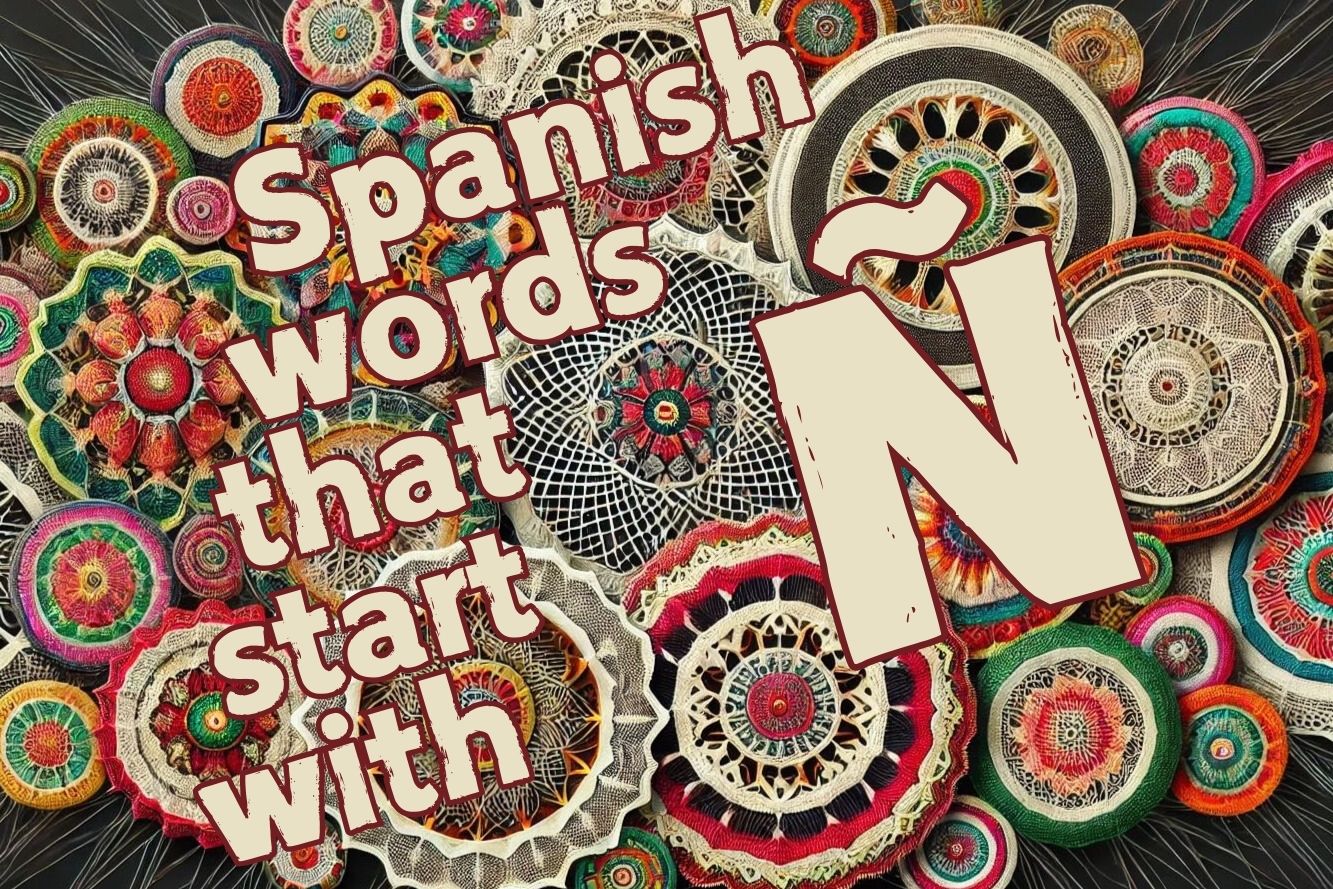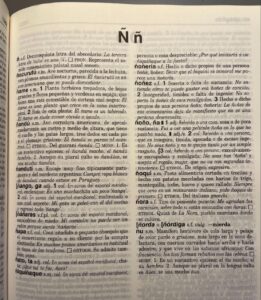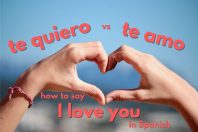Spanish words that start with Ñ: The entire list, from Ñacurutú to Ñu

Get our free email course, Shortcut to Conversational.
Have conversations faster, understand people when they speak fast, and other tested tips to learn faster.
More infoSpanish is known for its interesting sounds and letters, one of the most distinctive being Ñ. Spanish words that start with Ñ are rare but unique, adding a special and appreciable touch to the language. This letter is deeply rooted in the culture and the Spanish language.
We have another post where we talk about how to pronounce the Spanish letter Ñ, where we also delve into its history. Most of the examples in that post include the letter Ñ in the middle of the words, since so few actually start with Ñ in Spanish. So for today’s post, our focus will be entirely on Spanish words that start with Ñ. Let’s break these down into lists by nouns, adjectives, and verbs, looking at the interesting variety of Spanish words that start with the letter Ñ!
Ñ in Spanish: Pronunciation
We go into this in more detail in our post on the history of the letter Ñ in Spanish, but let’s still take a moment to make sure you know how to properly pronounce the letter Ñ. Fortunately, it’s pretty easy to master!
In Spanish, this letter has a unique nasal sound that resembles the -ny- in the English word canyon. The equivalent Spanish word, cañón, is pronounced almost the same way (just with the accent on the second syllable rather than the first).
To make this Ñ sound, we start by closing off the roof of the mouth with the tongue, placing its tip right behind the teeth. We enunciate through the nose and then open up the tongue again to complete the Ñ pronunciation.
Try this with words like niño, which means boy or child in Spanish, or mañana, which means tomorrow. That -ny- sound is precisely what we’re aiming for with Ñ. Now try putting this into action over the rest of the post as you pronounce all of our Spanish words that start with Ñ!
Most Spanish words that start with Ñ don’t have a precise English translation, so we’ll introduce most of them individually with explanations rather than in straight vocab tables.
Now, let’s embark on a journey into the world of Spanish words that start with Ñ.
Spanish nouns that start with Ñ
Spanish nouns that start with the letter Ñ are not very common, but we still have a few to learn. Let’s start with a table of Spanish Ñ nouns with translations that are fairly straightforward, and then move on to our Ñ words which need longer explanations. Still, we’ll include a column of explanations in this list, for completeness.
| Spanish Ñ nouns | English translation | Meaning |
| El ñacurutú | Great horned owl | A type of owl that lives in tropical South America |
| El ñame | Yam | An edible potato-like root from a tropical plant |
| El ñandú | Rhea | A large flightless bird that lives in South America |
| La ñapa | Bonus, Extra | A little gift or bonus given after buying something |
| La ñoñería | Silliness | A silly or foolish activity |
| La ñoñez | Nerdiness | Being unfashionable and socially inept, or boringly studious |
| El ñoqui | Gnocchi | Small dumplings made from potato, semolina, or flour |
| El ñu | Wildebeest, Gnu | A large African mammal that has a long tail and horns that curve to the sides |
- El ñacurutu es un tipo de búho que vive en las zonas templadas de toda Sudamérica. – The great horned owl is a type of owl that lives in temperate zones throughout South America.
- Mi mamá siempre usa ñame cuando prepara sus sopas. – My mom always uses yams when she prepares her soups.
- Las patas del ñandú, que terminan en tres dedos, están adaptadas para la carrera. – The rhea’s feet, which end in three toes, are adapted for running.
Now that we’ve seen the nouns whose translations can be summed up in one word, let’s learn the meanings of the other Spanish nouns that start with Ñ.
Ñandutí
El ñandutí is a white or brightly colored lace fabric very typical of Paraguay that imitates a spider’s web. The word comes from the Guaraní language, in which ñandutí means spider’s web or tela de araña. Typical ñandutí patterns are featured in our main image at the top of this post.
Ñáñara
Ñáñara is a versatile Ñ word in Spanish, since its meaning changes depending on the country. As a slang word in Cuba or the Dominican Republic, una ñáñara is used to refer to a sore or a skin rash. In Honduras, ñáñara is used as a noun to refer to laziness. Finally, in Mexico, Guatemala, and Nicaragua, it’s used to describe feelings of repugnance or fear.
- Mi mamá no puede ver un ratón porque le da ñáñaras. – My mom can’t see a mouse because she’s disgusted by them.
Ñaqui
Un ñaqui is a slang term from Puerto Rico that refers to a little piece of something. It’s mostly used to talk about foods, so asking for un ñaqui is a way to ask for a little bite.
- Dame un ñaqui de ese pastel, se ve delicioso. – Give me a little bite of that cake, it looks delicious.
If you’re into Latin music, you may have heard ñaqui used in other suggestive contexts as well. Mariah Angeliq is offering a drag, while Ozuna suggests a cheeky little nibble!
ECKO, Mariah Angeliq – Reggaeton De Antes
Préndeme el blunt que no voa’ compartir
Te doy un ñaqui si me canta la, la, la, la
DJ Snake – Taki Taki ft. Selena Gomez, Ozuna, Cardi B
Taki taki, quieres un besito o un ñaqui
While the use of ñaqui may be spreading thanks to pop culture, keep in mind that this slang term is still mostly unknown outside of Puerto Rico.
Ñiquiñaque
Un ñiquiñaque is used to refer to a very despicable person or thing. It’s quite uncommon. Other possible English translations to describe a ñiquiñaque include an evil, bad, wretched, vile, or detestable person.
- No quiero que invites a ese ñiquiñaque a nuestra boda, él trató muy mal a mi mamá. – I don’t want you to invite that bad person to our wedding, he treated my mother very badly.
Ñora
This word from Spain refers to a type of small round sweet red pepper. Una ñora has an intense red color when ripe, and is often dried to use as a condiment.
- El chef utilizó ñoras secas para darle un toque especial al arroz. – The chef used dried sweet red peppers to give a special touch to the rice.
Ñorda, Ñórdiga
Ñorda and ñórdiga are colloquial and fairly vulgar terms used in certain Spanish-speaking regions to refer crudely to feces or excrement. Neither should be used in polite conversation, as they’re both considered slang. They’re normally employed in informal or humorous contexts, or when addressing something or someone as worthless or with insignificant value. In these contexts, ñorda or ñórdiga can be considered as literal translations of shit in Spanish.
- La ñorda del gato siempre tiene mal olor. – Cat excrement always has a bad smell.
If you’re interested in learning a wide variety of vulgar expressions in Spanish, you’ll surely appreciate our comprehensive list of Spanish swear words!
Adjectives that start with Ñ
There are very few Spanish adjectives that start with Ñ, but they can still bring nuance to our descriptions. Since our Spanish Ñ adjectives are all used as slang, they don’t have literal translations. We’ll therefore introduce each one individually, explaining what they mean and how they’re used.
Ñángara
Ñángara is a Venezuelan slang term with political or ideological connotations, with the same meaning in Cuban slang. Someone who is described as ñángara is taken to be communist or leftist, typically aimed at those with strong socialist or communist inclinations.
Often, describing someone as ñángara implies a derogatory or a mocking intent on the part of the speaker, though depending on context its connotations can range from humorous to offensive.
- En mi universidad hay muchos profesores ñángaras que hablan sobre el socialismo. – At my university, there are many leftist professors who talk about socialism.
Ñango
Ñango is an adjective that’s primarily used as a Mexican slang term, though it’s also used in some parts of Central America. Describing someone or something as ñango implies that they’re weak, frail, or feeble. This word is often used to talk about a person who appears physically weak or thin, or to describe an animal or object that seems fragile, flimsy, bad-looking, or mistreated.
- El perro está un poco ñango, parece que no ha comido bien. – The dog looks a bit weak, it seems like it hasn’t been eating well.
Ñato
In Latin America and Spain, the word ñato is technically used to describe someone with a snub nose or a flat nose due to a medical condition known as labio leporino or cleft lip.
While it can indeed refer to a physical trait, ñato is more broadly used as a Peruvian slang term to show affection, especially when referring to a child.
- Mi primo es ñato, pero eso le da un aspecto muy simpático. – My cousin has a flat nose, but it gives him a really friendly look.
Ñoño
We’ll wrap up our list of Spanish Ñ adjectives with ñoño, which is a versatile word to describe someone as nerdy, dull, overly sentimental, or even boring. It also refers to people seen as excessively shy, lacking excitement, or cautious. Depending on the context, ñoño can be taken as an insult, while it’s also used commonly enough in a playful, teasing manner.
Ñoño can describe not only people, but also things, like movies, books, or conversations, that feel overly corny, sentimental, or lacking excitement.
- Esa película es muy ñoña, demasiado sentimental para mi gusto. – That movie is too cheesy, too sentimental for my taste.
Verbs that start with Ñ
Verbs starting with Ñ are extremely rare in Spanish. In fact, the Royal Spanish Academy only acknowledges three verbs that start with Ñ, each of which are colloquial terms used in Specific countries.
What’s more, these three verbs, ñampearse, ñangotarse, and ñatear, can each have different meanings depending on the context. Let’s see each of these Spanish Ñ verbs in turn.
Ñampearse
Ñampearse is a verb used in certain parts of Central America, particularly Panama, used to refer to the act of eating greedily or stuffing oneself with food. It’s an informal verb, typically used in casual conversations to describe someone who’s overeating or indulging excessively. As with other Panamanian slang, ñampearse may not be widely recognized in all Spanish-speaking countries, but it’s common enough in areas where it’s used.
Ñampearse is a reflexive verb, so we always use it with the reflexive pronoun. It conjugates like any other regular -ar verb.
- Después de la fiesta, ellos se ñampearon con los postres. – After the party, they stuffed themselves with desserts.
Ñangotarse
The verb ñangotarse holds cultural significance in some Caribbean Spanish dialects, particularly in Puerto Rico and the Dominican Republic. It basically means to squat or to crouch down, describing the act of lowering the body by bending the knees.
While it objectively refers to the movement of getting closer to the ground, ñangotarse can also be interpreted in some cultural contexts as kneeling in submission or humiliation.
In addition, ñangotarse is a fitting term to describe when a person loses interest in something.
Like ñampearse, ñangotarse is also a reflexive verb that follows regular -ar conjugations.
- Mis primos se ñangotaron alrededor del fuego para escuchar historias. – My cousins squatted around the fire to listen to stories.
Ñatear
This verb has two distinct meanings depending on the region. In some parts of Latin America, particularly in Panama, ñatear refers to swiping something or stealing it sneakily. Ñatear is used in casual conversations, generally referring to small acts of theft or taking something without permission.
In other regions, particularly in Central America, ñatear is an everyday verb that can describe sniffing or checking something by smelling. In this context, ñatear can also be used when sniffing drugs.
- Ñateé la leche para ver si estaba en mal estado. – I sniffed the milk to check if it was spoiled.
Conclusion: Spanish words that start with Ñ
Believe it or not, we’ve just explored all the Spanish words that start with Ñ! As you can see from the Ñ page in the Spanish dictionary below, we actually even introduced several additional Ñ words that are only used in certain regions! Let’s end with a quick wrap-up to review what we saw today.
In today’s post, we dove into the fascinating world of words in Spanish that start with Ñ. First we discussed our Spanish Ñ pronunciation, noting that it’s akin to the -ny- in the English word canyon. From there we moved on to our vocab lists, going through the nouns, adjectives, and verbs.
Since most of the Spanish words that start with Ñ don’t have straight English translations, we spent a lot of time explaining what each of these words means. Likewise, since many are only used as regional slang terms, we made a point of explaining exactly where in the Spanish-speaking world these Ñ words are actually used.
To wrap up, remember that although Spanish words that start with Ñ may be rare, they add a unique richness and cultural depth to the language. Even though they may be less common, their distinctiveness makes them valuable in fully mastering the language. Learning and using these Ñ words can expand your vocabulary and help you connect with Spanish-speaking communities’ linguistic and cultural nuances!




